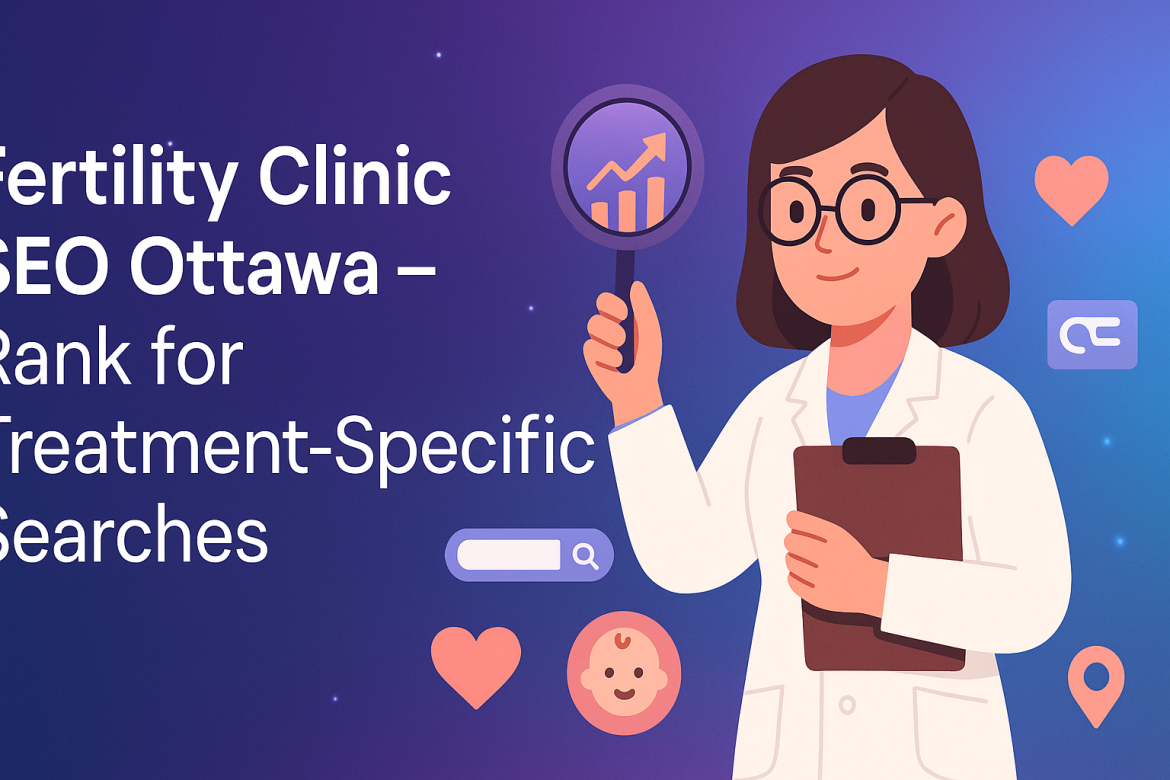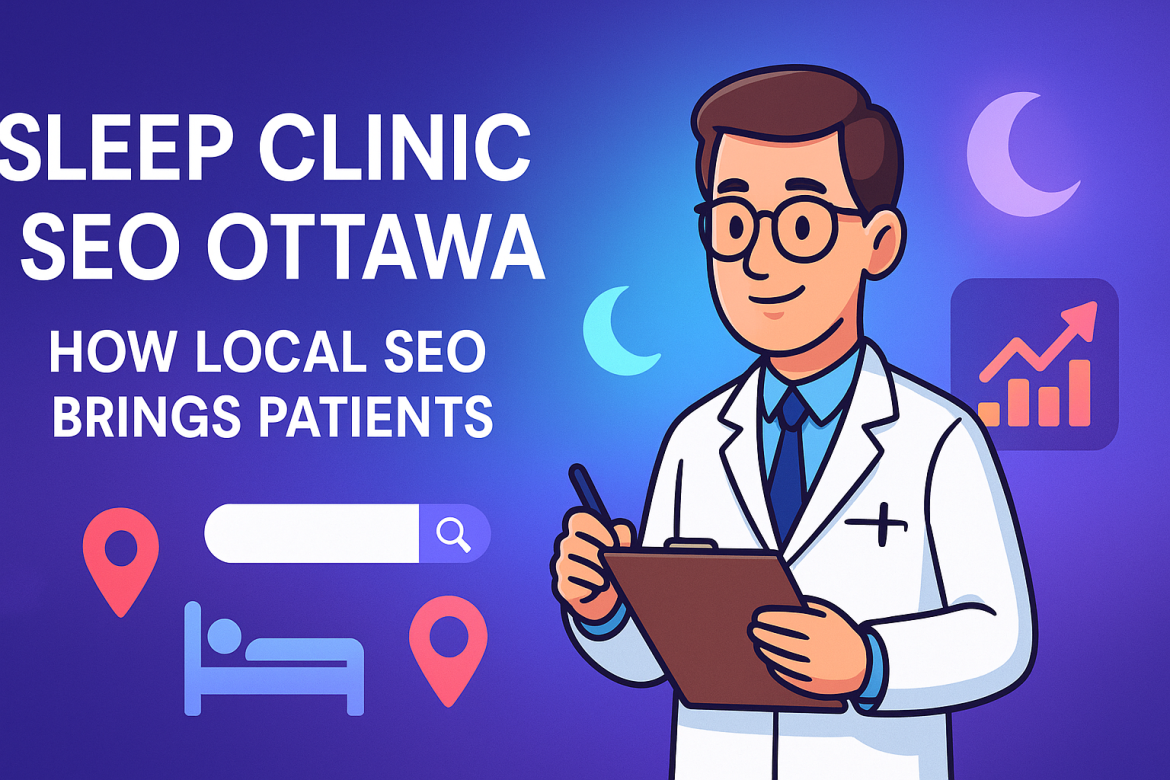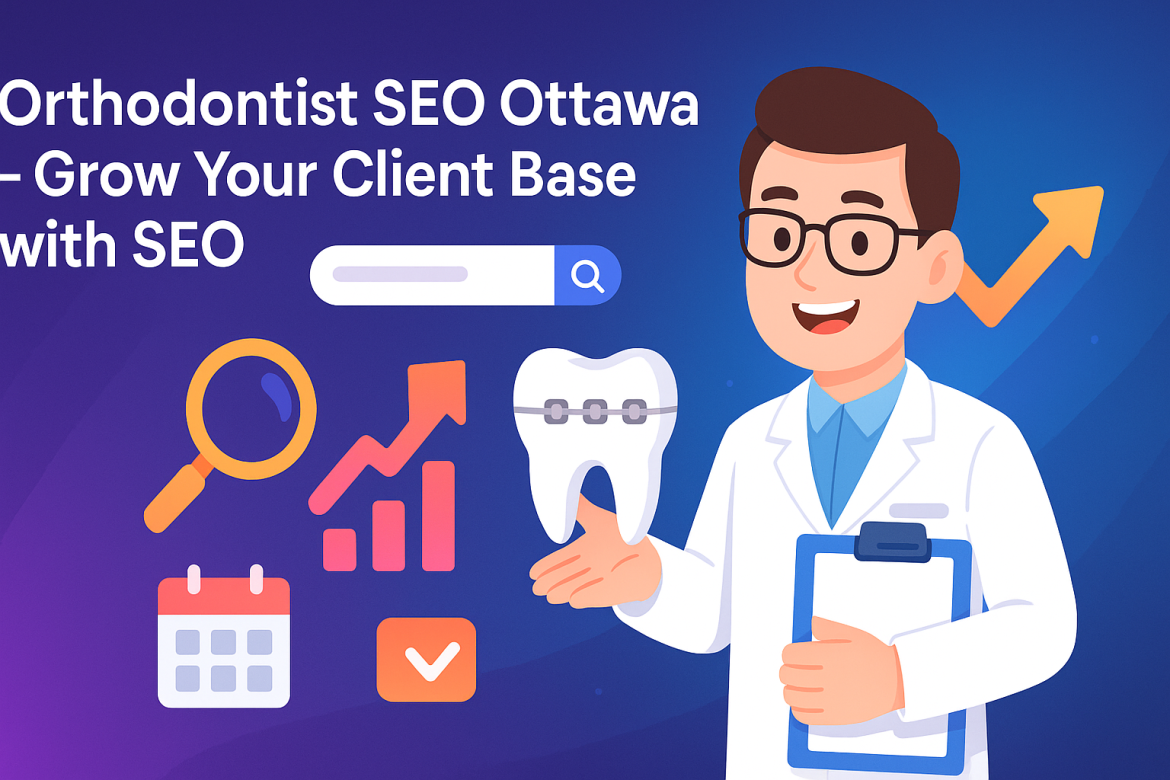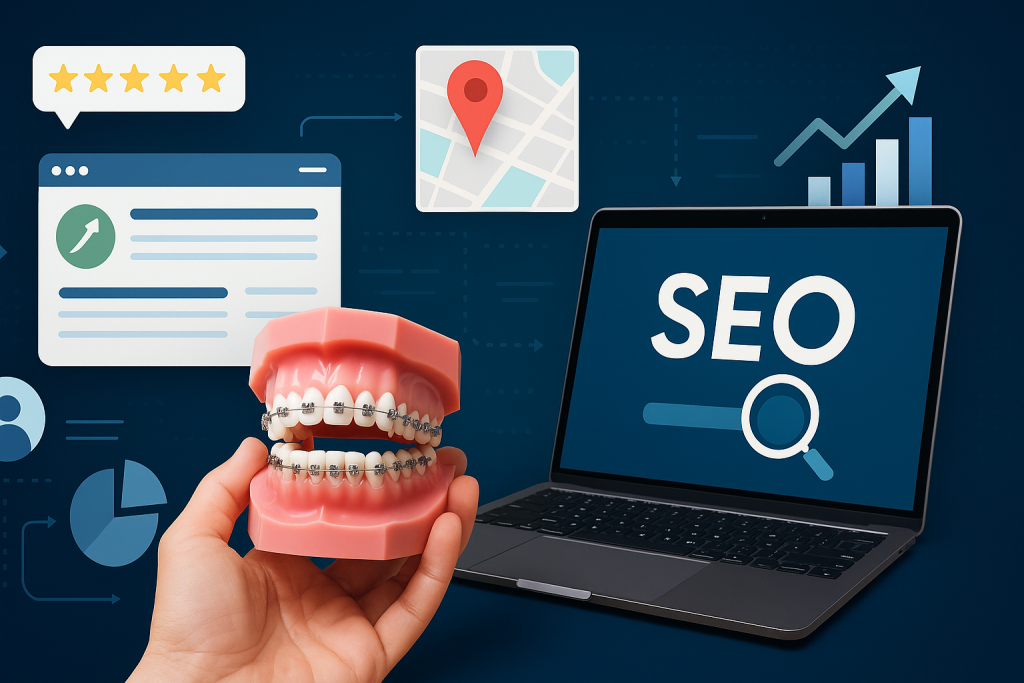In 2025, Ottawa electricians face a rapidly evolving digital landscape where competition for local leads is more intense than ever. Homeowners and businesses no longer rely on word-of-mouth alone—they search Google for “electrician near me” and book the providers who dominate local search results. If your electrical business isn’t ranking at the top, you’re losing leads to competitors. This guide explains how Electrician SEO in Ottawa can help you dominate local search, book more jobs, and scale your revenue in 2025.
Why Electricians in Ottawa Need SEO in 2025
Shifts in Consumer Behavior
Ottawa homeowners are increasingly turning to Google, Google Maps, and voice search to find electricians. Whether it’s an emergency wiring issue or a full renovation project, the first-page results capture nearly all the attention. Without strong SEO, your business is invisible.
Rise of Local Intent Searches
Over 80% of searches for electricians now include geo-specific intent, such as “licensed electrician Ottawa” or “24-hour electrician near me.” By investing in local SEO strategies, your business positions itself exactly where customers are searching.
Growing Competition
Electricians who once relied solely on referrals are now building strong digital presences. To stay competitive, you need a strategy that ensures your website outranks rivals and builds trust.
Key SEO Strategies for Ottawa Electricians
1. Optimize Your Google Business Profile
Your Google Business Profile (GBP) is often the first impression potential clients get. An optimized profile increases visibility in Google Maps and local 3-pack results.
- Add complete business information (hours, phone, services, service areas).
- Upload geo-tagged photos of completed electrical projects.
- Encourage customers to leave 5-star reviews.
- Post regular updates and service promotions.
For a step-by-step guide, review strategies similar to those outlined in local SEO optimization.
2. Build a High-Converting Website
A professional website not only improves rankings but also converts visitors into paying clients.
- Service Pages: Create dedicated pages for “Residential Electrician Ottawa,” “Commercial Electrician,” and “Emergency Electrical Repairs.”
- On-Page SEO: Use clear title tags, meta descriptions, and schema markup.
- Mobile Optimization: With 70% of searches happening on mobile, fast load speed and responsive design are critical.
- Calls to Action: Prominent “Book an Appointment” or “Request a Quote” buttons.
For pricing insights, check Ottawa web design cost breakdowns.
3. Content Marketing for Electricians
Publishing useful, keyword-rich content boosts authority and search rankings.
- Blog Posts: Topics like “How to Know If Your Home Needs Rewiring” or “Top 5 Electrical Safety Tips for Ottawa Homes.”
- Guides: Seasonal content like “Winter Electrical Safety in Ottawa” attracts timely searches.
- Video Content: Show how-to clips or explain services. (See how to gain more YouTube views).
Quality content not only educates but also positions you as Ottawa’s trusted electrical expert.
4. Local Link Building
Backlinks from local directories and Ottawa-based businesses help your site rank higher.
- Partner with Ottawa home builders, renovation companies, or contractors.
- Get listed on trusted directories and trade associations.
- Sponsor local events to earn digital mentions.
For authority-building, see high-quality link strategies.
5. Target Voice Search & AI-Powered Queries
With the rise of AI-driven assistants, voice searches like “Hey Google, find an electrician in Ottawa” are increasing. Electricians must adapt content to conversational, question-based queries such as:
- “Who is the best electrician near me?”
- “How much does it cost to install new wiring in Ottawa?”
Optimizing for voice also ties into Google’s AI-driven search changes (see AI-powered SEO insights).
Common SEO Mistakes Electricians Must Avoid
- Ignoring Reviews: Negative reviews left unchecked damage trust.
- Thin Content: Generic service pages don’t rank or convert.
- No Tracking: Failing to measure calls, leads, and rankings wastes marketing dollars.
- DIY SEO: Without expert guidance, businesses risk penalties from poor link practices.
For realistic expectations, review what SEO costs in Ottawa.
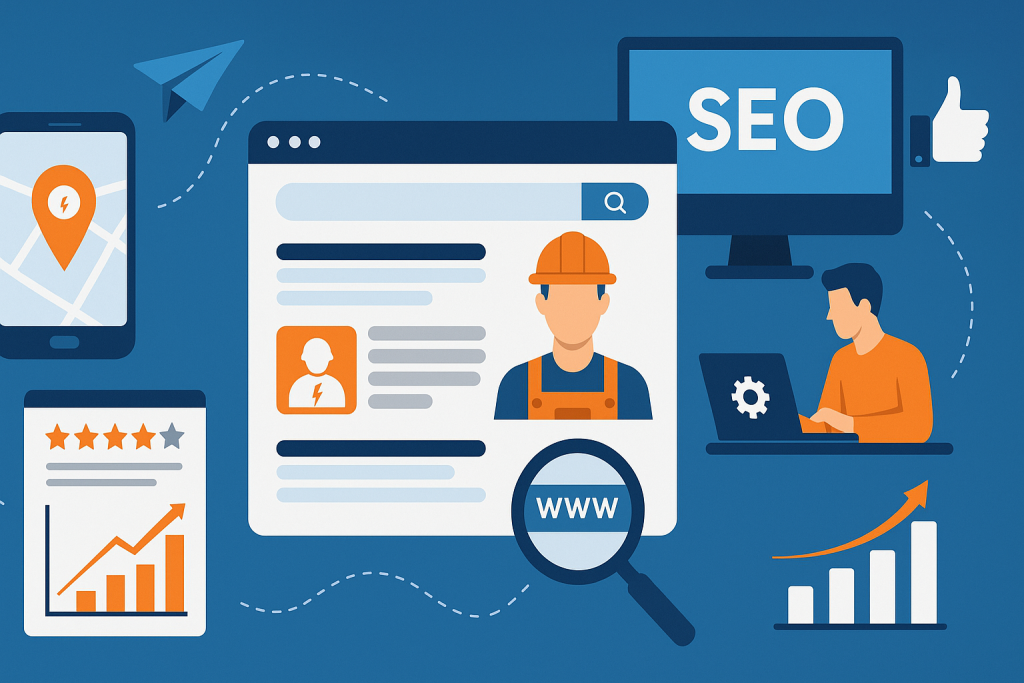
Advanced SEO Tactics to Dominate Ottawa in 2025
Schema Markup for Electricians
Schema helps Google understand your services and displays rich results such as FAQs, reviews, and service areas.
Hyper-Personalized Landing Pages
Target micro-locations within Ottawa such as Kanata, Nepean, or Orleans with unique landing pages for each area.
Conversion Rate Optimization (CRO)
Fine-tune your site to convert more visitors into clients. Even small tweaks like optimizing booking forms or adding trust badges can boost leads.
AI & Automation in SEO
AI tools now analyze search intent and predict keywords before they trend. Electricians who leverage AI gain a competitive edge.
For broader trends, explore top SEO strategies for 2025.
External Factors That Influence Electrician SEO
Government Regulations
Ottawa homeowners often search for electricians certified under Ontario’s Electrical Safety Authority (ESA). Mentioning compliance builds trust and improves search relevance. Reference government guidance on electrical safety from Ontario ESA and Government of Canada business resources.
Local Competition
Tracking competitor rankings and analyzing their backlink strategies ensures your business stays ahead.
Economic Conditions
With rising housing and renovation projects in Ottawa, the demand for electricians is increasing. SEO positions your business to capture this growth.
Why Partner with a Professional SEO Agency
Many electricians waste time trying to manage SEO on their own. An Ottawa-based SEO agency understands local competition, regional search intent, and industry-specific strategies.
Professional SEO services include:
- Local SEO management
- Ongoing keyword research
- Monthly performance reports
- Reputation management
- Competitor analysis
Agencies align SEO with your business goals so you get measurable results. Learn more about Ottawa SEO services.
Conclusion: Secure Your Place at the Top
In 2025, Ottawa electricians who invest in SEO will dominate local leads, while those who ignore it will lose ground. From Google Business optimization to AI-driven search strategies, the path to success lies in a comprehensive digital marketing plan tailored for electricians.
To start attracting more clients and securing top rankings, contact Ottawa SEO experts today.



